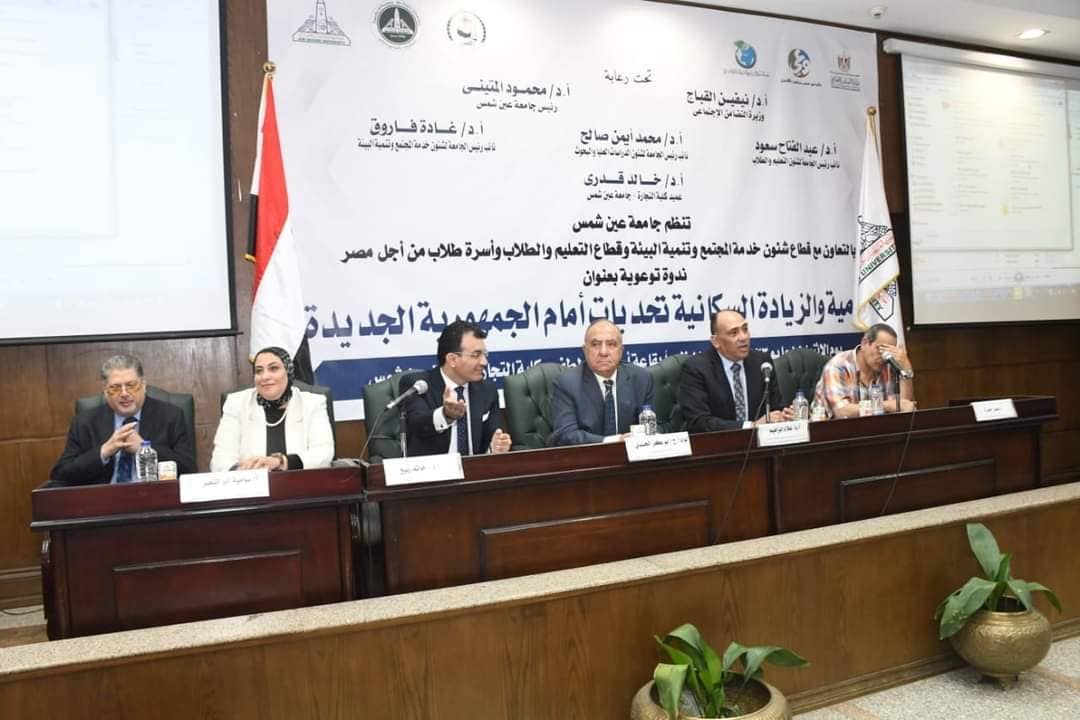A seminar calling for the abolition of public service for girls in exchange for five people being literate
"Illiteracy and population increase are challenges facing the new republic" is the title of the symposium organized by the Strategic Forum Association in cooperation with Ain Shams University, under the auspices of Dr. Nevin Kabbaj, Minister of Social Solidarity, and Prof. Mahmoud El-Meteini, President of Ain Shams University, in Prof. Ali Lotfi Hall at the Faculty of Business - Ain Shams University and under the slogan "With awareness, Egypt is changing for the better... Stay aware."
At the beginning, Dr. Hatem Rabih, the leader of the Students for Egypt family, pointed out the importance of this symposium to educate young people who are future leaders and that their awareness is a barrier against all threats facing the Egyptian state. He also welcomed the holding of the forum in the Faculty of Business.
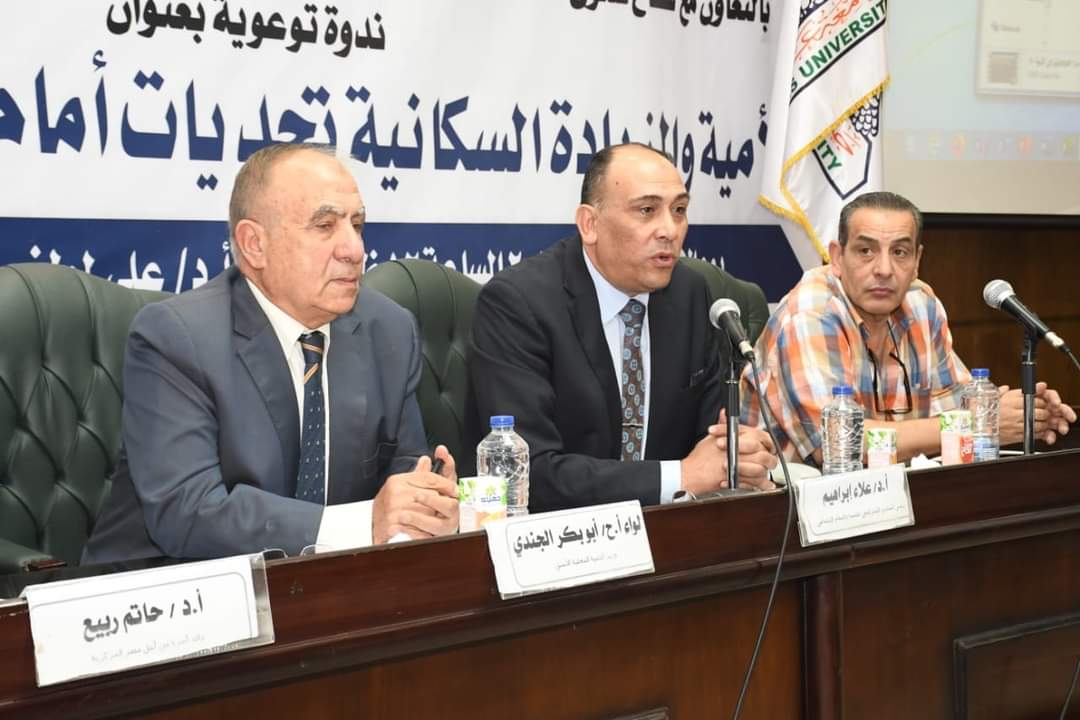 |
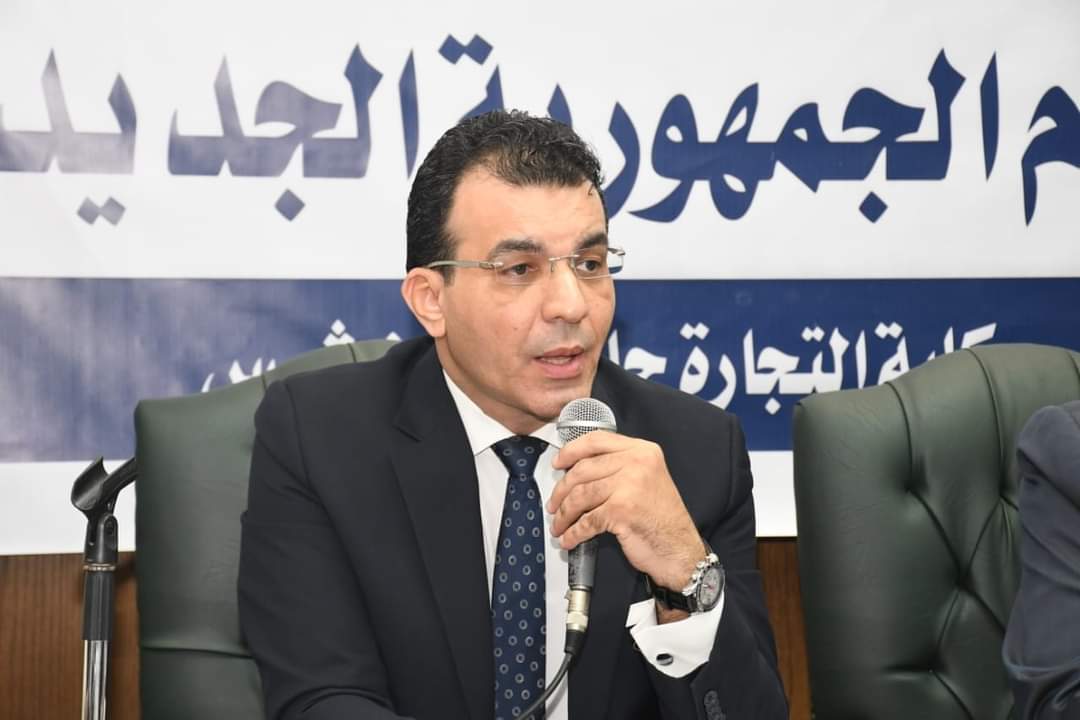 |
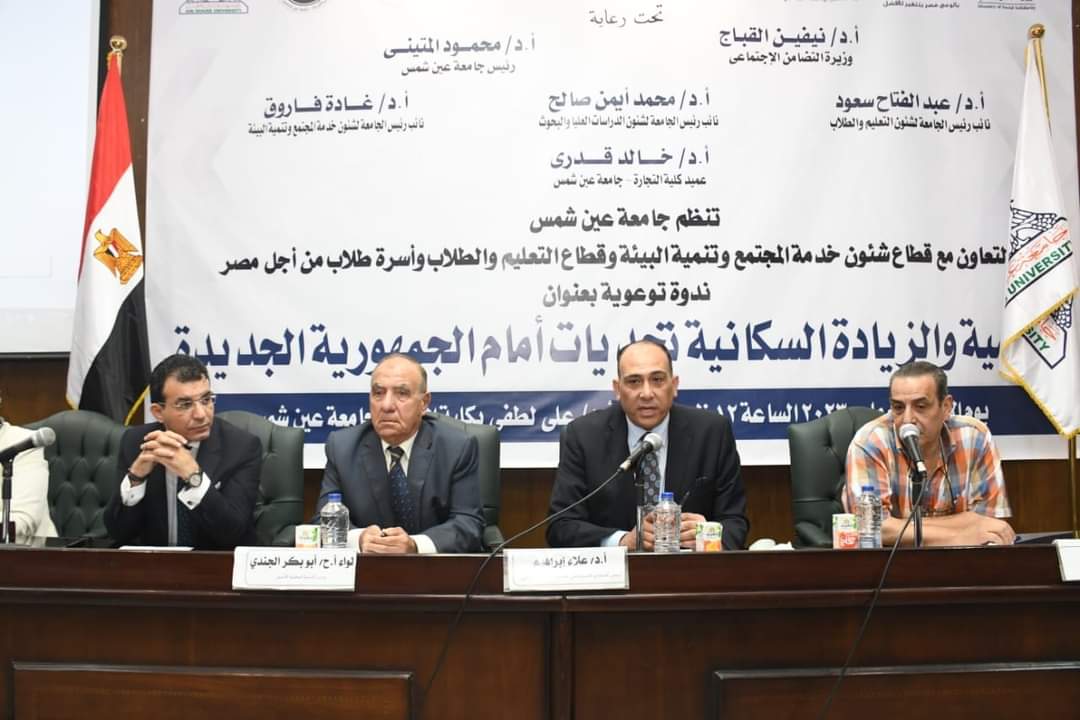 |
||
Dr. Alaa Rizk, head of the Strategic Forum for Development and Social Peace, pointed out that the Faculty of Business is the lung of the university because it is the faculty of life, pointing out that there is a correlation between illiteracy and the poverty syndrome, as 70% of the poor in Egypt, or more than a third of the illiterates, are poor, so if we can eradicate illiteracy, and close the school dropout trap, we will reduce child marriage and thus the population increase. This will also lead to improving demographic characteristics and raising the standard of living of citizens, calling for legislation to abolish the girl’s public service in the event that five individuals are literate, and thus we will have zero illiteracy within 5 years.
He added that if we have international models for advanced countries such as Japan, Indonesia and Singapore, then the Damietta governorate model must be studied, so every house has a workshop and everyone works, and there is also zero illiteracy.
The meeting was moderated by Alaa Bassiouni, Vice President of Egyptian TV, who pointed to the media's critical role in raising awareness of these important societal issues, as they are the cause of many societal problems such as child marriage and child labour.
Mr. Omar Hamza, Advisor to the Minister of Solidarity for Education, referred to the “No Illiteracy with Solidarity” initiative implemented by the Ministry of Social Solidarity, which aims to eradicate illiteracy among women in a large way, stressing that education is strength at any age because education helps to improve your life, find job opportunities and preserve your rights, which is the best future for you and your children.
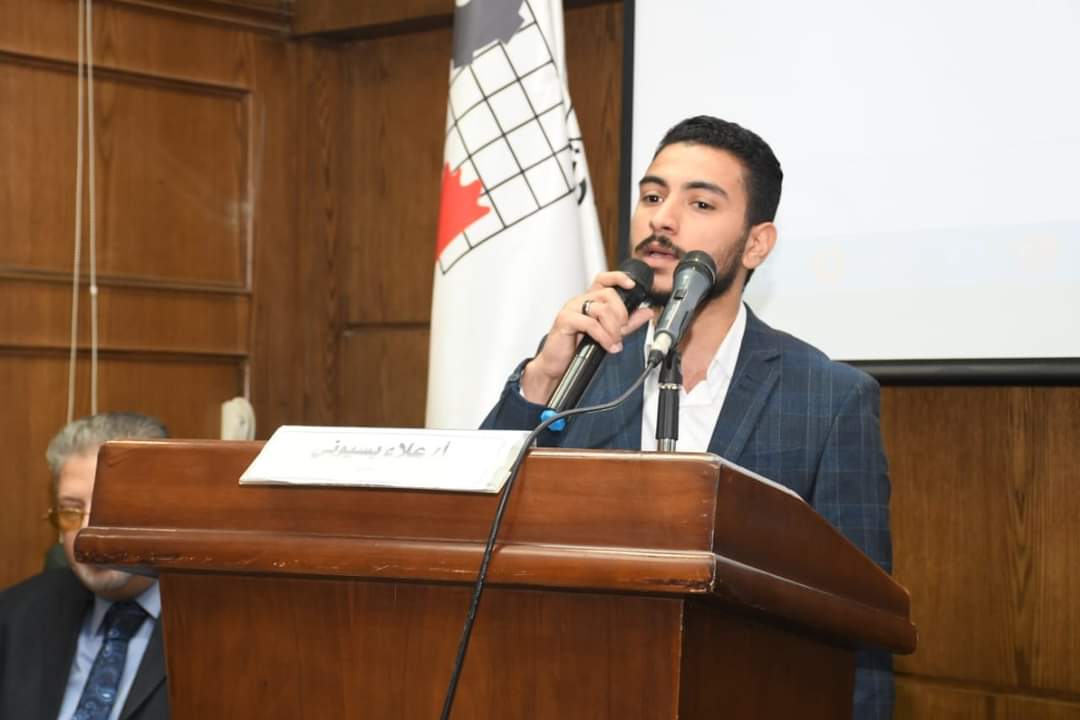 |
 |
 |
||
He also explained that those who receive cash support in the solidarity program conditional on education, adding that education helps you improve your life skills, develop your work, preserve your rights, and educate children up to the secondary stage (males and females) is a mandatory duty for every family, as we must move from the stage of awareness to the stage of awareness , demanding that there be a way out of this symposium to be implemented in cooperation with the Strategic Forum Association.
He added that there are nearly 30 million people who cannot read and write, which is a disaster, explaining that the educated person produces 30% more than the uneducated, hence the importance of the issue of illiteracy and its seriousness, as well as its serious impact, as it is linked to any problem, as it is considered an element of any problem.
Major General Abu Bakr al-Jundi, former Minister of Local Development and head of the Central Agency for Public Mobilization and Statistics, referred to the population problem in Egypt, its dimensions, high population growth, low population characteristics, and unbalanced population distribution. He also made a comparison between the number of births between Egypt and some countries, in 1950 the population of Egypt = the population of Italy, and in 1977 the population of Egypt = the population of Italy + France, while in 2000 the population of Egypt = the population of Italy + France + Spain, and in 2013 the population of Egypt = the population of Italy + France + Spain + the United Kingdom, and in 2014 the population of Egypt reached = the population of Italy + France + Spain + United Kingdom + Sweden.
He asked the students to read the books of the great thinker Gamal Hamdan and the author of The Genius of Egypt, because he was proactive in his predictions.
Pointing out that he supervised the population census twice, and that took a lot of effort, and that the continuation of the population increase poses a threat to Egypt more than terrorism.
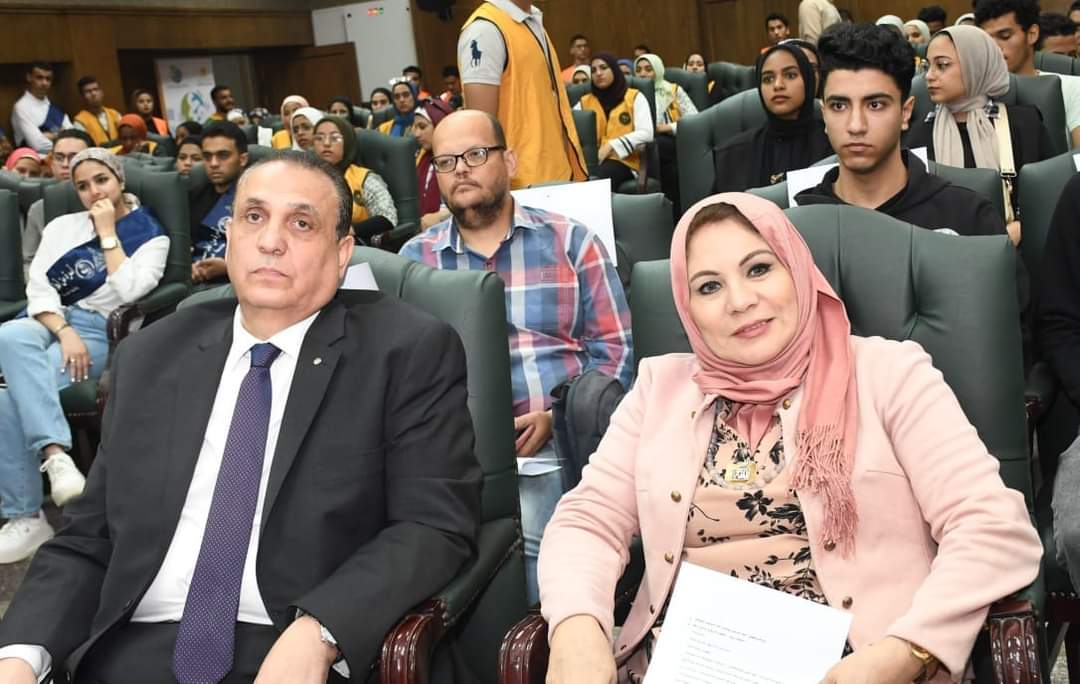 |
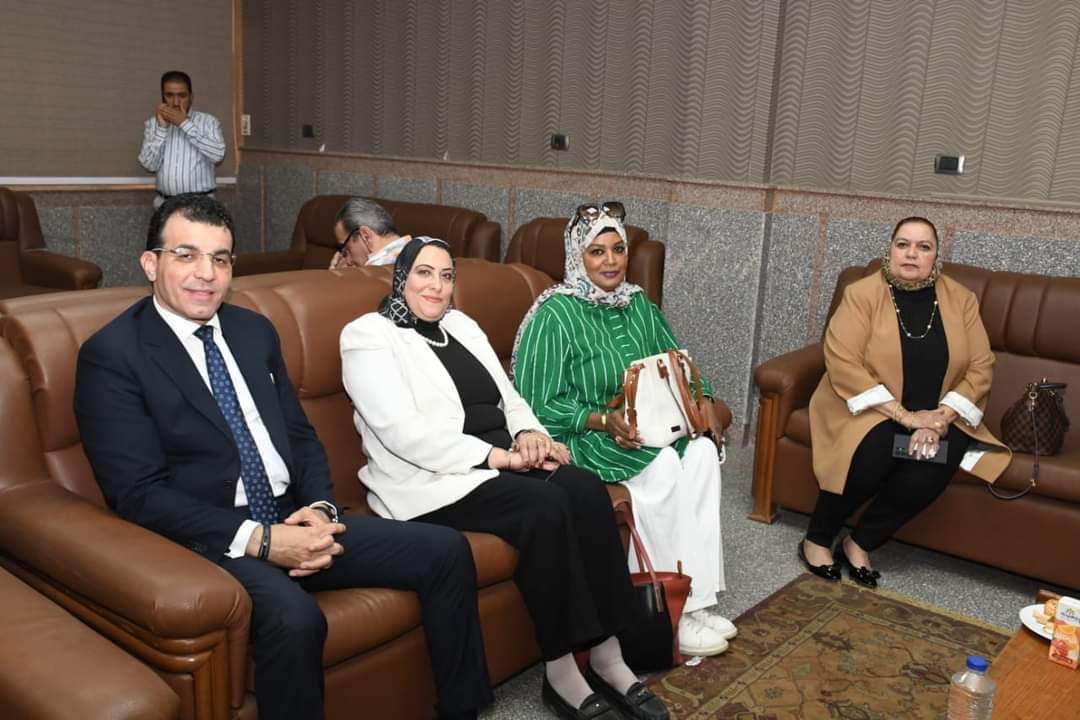 |
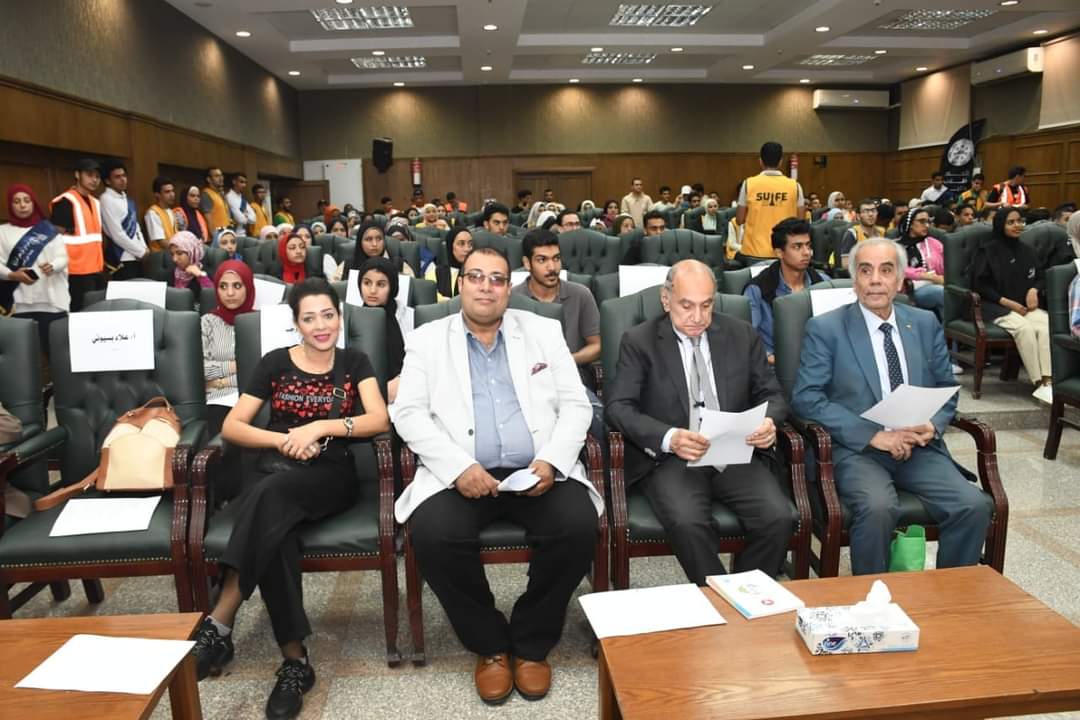 |
||
Dr. Samia Abu Al-Nasr, Editor-in-Chief of Al-Ahram newspaper and General Coordinator of the symposium, expressed her pride in her presence at Ain Shams University, the third oldest Egyptian university, which was founded in July 1950 under the name of Ibrahim Pasha University. The university is considered one of the most prestigious Arab universities, its age is nearly 73 years, noting that today’s symposium is being held within the framework of implementing the awareness initiative for community development and based on the protocol signed between the Strategic Forum Association and the Ministry of Solidarity, in the context of raising awareness of the seriousness of illiteracy and its dangerous repercussions represented by the population increase that devours all development resources.
We must also recognize that there are several types of illiteracy such as religious illiteracy, health illiteracy, technological illiteracy, environmental, legal and political illiteracy.
She added that it must be said that illiteracy is a national security, as the weakness of success steps, and the inability to besiege its social dimensions, contributed to making it a national problem, which casts a shadow over many issues with intellectual dimensions.
Pointing out that the National Strategy for Human Rights was signed to comply with the National Population Strategy, as it refers to the human right to education and the right to housing.
The strategy is also based on the fact that human rights are rooted in human dignity, non-discrimination, ensuring human rights in a framework of equality and equal opportunities, respecting the principle of citizenship, promoting good governance, and combating corruption, which are universal, interdependent, interdependent, and indivisible rights. Documentary films were shown and that education is power at any age and two children are enough.
At the end of its work, the symposium called for the importance of a population law that defines specializations, criminalizes dropping out of education, and gives positive incentives to young people who are keen to plan their families.
It also demanded the presence of a deputy prime minister for population whose task would be to coordinate between all ministries and agencies concerned with this important issue.
The symposium was attended by students of Family for Egypt from various faculties of Ain Shams University, as well as a large number of members of the Strategic Forum and members of the Board of Directors of the Forum, including Dr. Tariq Wafik, former Minister of Housing and Dr. Salah Arafa, as well as in the presence of Dr. Mamdouh Abdel-Aleem, Vice Dean of the Faculty of Business, at Ain Shams University, and a number of faculty staff at Ain Shams University.
At the end of the symposium, a song for Egypt and a number of patriotic songs were heard.


.svg)

